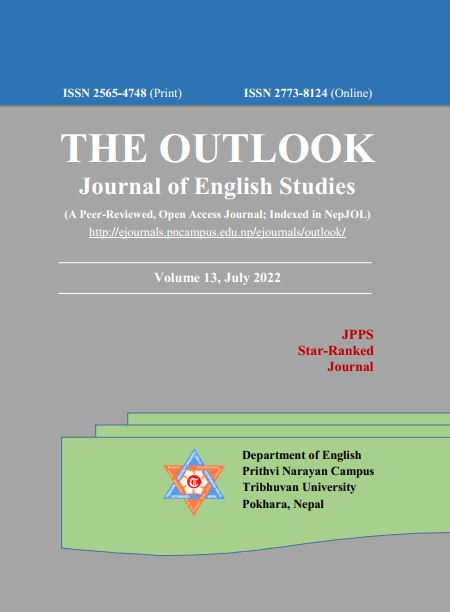Terrorism and Poverty against Child Right in South Asia: A Rhetorical Analysis of Speeches of Yousafzai and Satyarthi
DOI:
https://doi.org/10.3126/ojes.v13i1.46698Keywords:
Islamic fundamentalism, child right, sounds of silence, rhetorical strategy, art of convincingAbstract
This paper analyses the rhetoric and the content of the speeches on the Nobel Prize award ceremony delivered by South Asian Nobel Prize laureates Malala Yousafzai and Kailash Satyarthi. It is the argument that the speakers have exposed in international forum concerning child right and education. Their speeches encompass the South Asian philosophy, language discourse, speech and tone, Hindu and Islamic scripture’s chants and the problems of terrorism and poverty. It aims to evaluate the rhetorical elements comparatively followed in the speeches to argue and convince the audience. Terrorism, poverty and trafficking are the main problems against child right and education in South Asian countries against which they struggled and raised voice and they deserved the award. As for method, the article adopts the audio speech in YouTube and written speech of both speakers in Google. Various internet sources of rhetorical analysis are taken as secondary resources to study and analyse their speeches. The speeches are analysed from the perspective of ethos, logos and pathos which are the main rhetorical elements in public speaking as discussed by Aristotle. Satyarthi’s speech is found more inclusive and strong than of Yousafzai’s in terms of coverage and content. Both speakers are aware of using rhetorical skills while introducing South Asian problem in international forum.
Downloads
Downloads
Published
How to Cite
Issue
Section
License
Copyright (c) 2022 Rohit Prasad Baral

This work is licensed under a Creative Commons Attribution-NonCommercial 4.0 International License.
This license enables reusers to distribute, remix, adapt, and build upon the material in any medium or format for noncommercial purposes only, and only so long as attribution is given to the creator.

